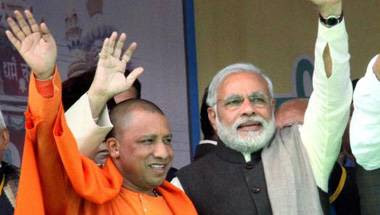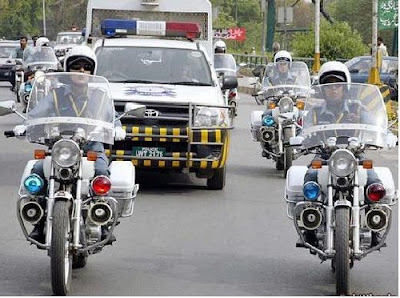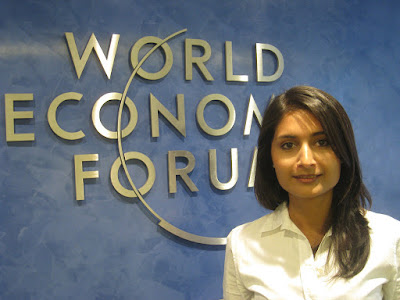Indians Among Top Asylum Seekers in OECD Countries
India is among the the top 5 sources of migrants seeking asylum in OECD countries, according to OECD's International Migration Outlook 2017. The other four are: China, Syria, Romania and Poland. Is increasing religious violence in India, like Syria, contributing to growing numbers of asylum seekers from the South Asian nation?
Indian asylum seekers rank 2nd in New Zealand, 4th in Latvia and 6th in Finland and United Kingdom and 8th in Australia, the OECD report says. The numbers of Pakistanis seeking asylum remains stable but they still show up among the top 3 asylum seekers in some OECD nations such as the UK, Ireland, Italy, Greece and South Korea.
Indians have sought political asylum in more than 40 countries over the years, according to the office of the United Nations High Commissioner for Refugees (UNHCR).
There's a long history of India's religious and ethnic minorities seeking asylum abroad after being persecuted at home, starting with the exodus of 8 million Muslim refugees fleeing to Pakistan after the Partition of India. Many more millions of Dalits, Muslims and Sikhs have left India to find refuge in Canada, Europe, the United States and elsewhere. Pakistan, too, has seen members of its religious minorities leave the country after persecution by the majority community.
Europe has historically seen a large number of new asylum applications from Indians---6,300 in 2012 and 2013. The United States has also experienced an increase in the number of Indian asylum seekers in recent years. Media reports show 2,100 Indians receiving asylum in the United States between 2012 and 2014. The rise of extreme right wing Hindu Nationalists and increasing violence against minorities are likely to further accelerate the trend.
Related Links:
Haq's Musings
Lynchistan: India is the Lynching Capital of the World
Fact-Checking Farahnaz Ispahani's "Purifying the Land of the Pure"
Indian Sikh Massacre of 1984
Yogi Adiyanath as UP CM
Hindu Nationalists Admire Hitler
Hinduization of India Under Modi
Muslim Victims of Gujarat 2002
India's Superpower Delusions: Modi's Flawed Policies
What Do Modi and Trump Have in Common?
 |
| UP CM Yogi Adiyanath with Indian PM Modi |
Indians have sought political asylum in more than 40 countries over the years, according to the office of the United Nations High Commissioner for Refugees (UNHCR).
There's a long history of India's religious and ethnic minorities seeking asylum abroad after being persecuted at home, starting with the exodus of 8 million Muslim refugees fleeing to Pakistan after the Partition of India. Many more millions of Dalits, Muslims and Sikhs have left India to find refuge in Canada, Europe, the United States and elsewhere. Pakistan, too, has seen members of its religious minorities leave the country after persecution by the majority community.
Europe has historically seen a large number of new asylum applications from Indians---6,300 in 2012 and 2013. The United States has also experienced an increase in the number of Indian asylum seekers in recent years. Media reports show 2,100 Indians receiving asylum in the United States between 2012 and 2014. The rise of extreme right wing Hindu Nationalists and increasing violence against minorities are likely to further accelerate the trend.
Related Links:
Haq's Musings
Lynchistan: India is the Lynching Capital of the World
Fact-Checking Farahnaz Ispahani's "Purifying the Land of the Pure"
Indian Sikh Massacre of 1984
Yogi Adiyanath as UP CM
Hindu Nationalists Admire Hitler
Hinduization of India Under Modi
Muslim Victims of Gujarat 2002
India's Superpower Delusions: Modi's Flawed Policies
What Do Modi and Trump Have in Common?




Comments
"Mr. Modi’s rule represents the most devastating, and perhaps final, defeat of India’s noble postcolonial ambition to create a moral world order. It turns out that the racist imperialism Du Bois despised can resurrect itself even among its former victims: There can be English rule without the Englishman. India’s claims to exceptionalism appear to have been as unfounded as America’s own." --- Pankaj Mishra
https://www.nytimes.com/2017/08/11/opinion/india-70-partition-pankaj-mishra.html
India’s lynch mobs today represent the latest and most grisly expression of such cynical political ideologies. As the sheer brutishness of Mr. Modi’s populism becomes clear, the memory of the aristocratic Nehru becomes more sacred, especially among politicians and commentators from India’s English-speaking upper castes. But Mr. Modi has also turned that legacy of high-flown promises to his political advantage.
Nehru and his followers had articulated an influential ideology of Indian exceptionalism, claiming moral prestige and geopolitical significance for India’s uniquely massive and diverse democracy. Only many of those righteous notions also reeked of upper-caste sanctimony and class privilege. Mr. Modi has effectively mobilized those Indians who have long felt marginalized and humiliated by India’s self-serving Nehruvian elite into a large vote bank of ressentiment.
Virtuous talk of unity in diversity and secularism has been replaced by a barefaced Hindu nationalism: The tattered old masks, and the gloves, have come off. The state, colonized by an ideological movement, is emerging triumphant over society. With the media’s help, it is assuming extraordinary powers of control — telling people what they should eat at home and how they should behave in public, and whom to lynch.
Mr. Modi’s rule represents the most devastating, and perhaps final, defeat of India’s noble postcolonial ambition to create a moral world order. It turns out that the racist imperialism Du Bois despised can resurrect itself even among its former victims: There can be English rule without the Englishman. India’s claims to exceptionalism appear to have been as unfounded as America’s own.
And so one can, of course, mourn this Aug. 15 as marking the end of India’s tryst with destiny or, more accurately, the collapse of our exalted ideas about ourselves. But a sober reckoning with the deep malaise in India can be bracing, too. For it confirms that the world as we have known it, molded by the beneficiaries of both Western imperialism and anti-imperialist nationalism, is crumbling, and that in the East as well as the West, all of us are now called to fresh struggles for freedom, equality and dignity.
http://www.bbc.com/news/world-asia-india-41169817
A prominent Indian journalist critical of Hindu nationalist politics has been shot dead in the south-western state of Karnataka, police say.
Gauri Lankesh, 55, was found lying in a pool of blood outside her home in the city of Bangalore.
She was shot in the head and chest by gunmen who arrived by motorcycle. The motive for the crime was not clear.
India journalists are being increasingly targeted by radical Hindu nationalists, activists say.
Gauri Lankesh, who edited a weekly newspaper, was known as a fearless and outspoken journalist.
She had returned home in her car on Tuesday night and was opening the gate when the attackers shot her, police said. She died on the spot.
Officials said they suspected she had been under surveillance by the gunmen. An investigation has been opened.
Her death has been widely condemned, with Karnataka state's chief minister Siddaramaiah calling it an "assassination on democracy".
Ms Lankesh came from a well-known family, and edited Lankesh Patrike, a newspaper founded by her father P Lankesh, a left-wing poet and writer.
She was the sister of award-winning filmmaker Kavitha Lankesh.
Who was Gauri Lankesh?
Known for her secularist criticism of right-wing and Hindu nationalists, including members of the ruling Bharatiya Janata Party (BJP)
Sympathetic to the Naxalites, or Maoist rebels, and was involved in the reintegration of former rebels
Worked for The Times of India and later ran the newspaper Lankesh Patrike, which her father founded, with her brother Indrajit for several years
She left to start several publications, including her own newspaper Gauri Lankesh Patrike
Ms Lankesh was convicted of defamation in 2016 for a report she published on local BJP leaders.
She was sentenced to six months in jail, and was out on bail and appealing the conviction at the time of her death.
In an interview with Narada News last year shortly after her conviction, she criticised BJP's "fascist and communal politics" and added: "My Constitution teaches me to be a secular citizen, not communal. It is my right to fight against these communal elements."
"I believe in democracy and freedom of expression, and hence, am open to criticism too. People are welcome to call me anti-BJP or anti-Modi, if they want to. They are free to have their own opinion, just as I am free to have my opinion."
'They come on motorbikes, kill, and vanish'
Her killing follows several assassinations of outspoken secularists or rationalists in recent years, including scholar Malleshappa Kalburgi, anti-superstition activist Narendra Dabholkar, and politician Govind Pansare.
https://timesofindia.indiatimes.com/india/Ayurveda-prescribes-beef-for-several-disorders-Scientist/articleshow/49743126.cms
Ancient Indian scriptures imposed no bar on eating beef and, in fact, ayurvedic Acharya Charaka had recommended beef for some disorders, said veteran scientist P M Bhargava in his letter to President Pranab Mukherjee marking his returning the Padma Bhushan.
TOI on October 29 first reported the decision of Bhargava, 87, the founder director of Centre for Cellular and Molecular Biology, to return the award he got in 1986, as a mark of protest against rising intolerance in the country.
Quoting Charaka Samhita, Bharagava said: "The flesh of the cow is beneficial for those suffering from the loss of flesh due to disorders caused by an excess of vayu, rhinitis, irregular fever, dry cough, fatigue, and also in cases of excessive appetite resulting from hard manual labour."
Bhargava said the lynching of Mohamed Akhlaq in Dadri "probably by fringe elements related to BJP" showed "the control that BJP wants to have on what we may eat ... just as it wants to control what we may wear, or whom we may love, or what we may read."
He called the Modi government "the least knowledgeable" about science. "I am a professional scientist with an experience of 65 years. I have also had the occasion of interacting on matters of science with the governments at the Centre since Independence. I find the present government the least knowledgeable and least concerned about science. The climate of religious conservatism that we have today is a major obstacle in the functioning of science and thus in meeting developmental objectives.
Bhargava was among the second batch of more than 100 scientists to sign an online petition last month against the "rejection of reason' that led to the assassinations of scholar M M Kalburgi, rationalist Narendra Dabhoklar and communist Govind Pansare.
In his letter to the President dated November 6, made available to TOI, the scientist named BJP and RSS behind the climate of intolerance. "No one would be more aware than you that, de facto, BJP is the political front of Rashtriya Swayamsevak Sangh (RSS), and functions under the leadership of RSS that is fully committed to the ideology of Hindutva, which I find divisive, unreasonable and unscientific," he said.
Noting that according to the Constitution, one of the duties of our citizens is to develop the scientific temper, humanism and the spirit of inquiry and reform, the letter said: "Steeped in superstition, unreason and irrationality, much of what RSS and BJP do goes against the grain of scientific temper. An example would be the recent statement of Shri Mohan Bhagwat who heads the RSS that marriage is a contract according to which the woman is supposed to be only a housewife and not work outside."
Bhargava said the Padma Bhushan had been very dear to him. "My returning it to you, for whom I have much respect and admiration, is an expression of my concern at the currently prevailing socio-politico situation in the country."
https://twitter.com/haqsmusings/status/1013796775285555201
Over the past weeks, a telecom giant, the Indian lender led by Asia’s richest banker, and the local rival of Uber Technologies Inc. have been roiled by controversies linked to comments on Facebook and Twitter involving a minority community in the Hindu-dominated nation. All these started as social media posts, then gained a life of their own as people backed or vilified the comments, eventually forcing the companies to react to contain any damage.
Tensions on social media are mounting as the world’s largest democracy approaches elections early next year that will pit the Hindu nationalist beliefs of Prime Minister Narendra Modi’s party against the main opposition, which often spotlights secularism and rising religious intolerance. Risk consultancy Kroll Inc. says it’s seeing an “exponential increase” in questions from corporate clients on how to manage the fallout from incidents on social media.
“It doesn’t just carry reputational and business risk, it can snowball into business continuity risks that can spread faster than a forest fire,” said Tarun Bhatia, a Mumbai-based managing director at Kroll. “Companies can’t choose their customers or control what they say. So it comes down to how companies manage these incidents, how quickly they react.”
Bharti Airtel Ltd., India’s biggest telecommunications provider thanks to its 304 million subscribers, was tested on that recently. This is how it began: Around noon on June 18, Twitter user Pooja Singh complained about an Airtel customer service representative. An Airtel employee replied, promising to get back with more information, and signed off as “Shoaib.”
This is a recognizable Muslim name in a country currently riven by passionate teams of social media trolls, akin to the U.S. experience where political discourse often degenerates into hate-filled accusations.
“Dear Shohaib, as you’re a Muslim and I have no faith in your working ethics... requesting you to assign a Hindu representative for my request. Thanks,” Singh responded. Soon after, another Airtel rep named Gaganjot -- a clearly non-Muslim name -- promised to resolve Singh’s concern.
On the morning of June 20, Airtel published a statement on twitter refuting accusations that it gave in to Singh’s alleged discriminatory demand, something that had already attracted severe criticism of the carrier and threats to discontinue its services, including from opposition lawmakers. The statement said that both Shoaib and Gaganjot were just following established workflow processes that “got read as ‘bowing down to bigotry.”’
“Airtel has been resolute for 23 years” and “our training manuals will never carry instructions to pause and check one’s identity before serving a query,” the statement read. The company didn’t reply to an email from Bloomberg seeking further comment.
he number of Indians who feel their life would be in danger if they continue to reside in the country is increasing at an exponential rate. An indicator of this trend for any country is the number of its citizens seeking political asylum in other countries.
For India, in the 10 years between 2008 and 2018, the total number of such people rose 996.33 per cent. These are Indians who have requested political asylum in other countries on the grounds that they feel fearful to continue living in the country.
In 2009, only 4,722 Indians felt scared to live in India and thus applied for political asylum in other countries. By 2018, this number rose to 51,769, reveals an IndiaToday.in analysis of data collected by the office of United Nations High Commissioner for Refugees (UNHCR).
In these 10 years, the United States and Canada have remained the most favoured countries for Indians seeking political asylum. In 2009, as many as 1,321 Indians applied for political asylum in the US while 1,039 did it in Canada.
While these two countries are still favourites among Indian political asylum seekers, the gulf between the number of Indians applying in the US and Canada has widened in the past decade.
Ten years ago, the difference in applications for the US and Canada was marginal--just 282. But by 2018, it ballooned to 22,967. (A total of 28,489 Indians applied for political asylum in the US in 2018 while 5,522 did it in Canada.)
United Nations data on asylum seekers for 2018 show that after the US and Canada, Indians prefer to seek political asylum in South Africa (4,329), followed by Australia (3,584), the UK (1,667), South Korea (1,657) and Germany (1,313).
Seeking political asylum in these countries isn't surprising as they are all developed economies and have an image of being peaceful and prosperous.
But what may come as surprising to some is that Indians have also sought political asylum in countries like Yemen, Sudan, Burundi, Bosnia among others--countries which have routinely hogged headlines for war and armed unrest in recent times.
Overall, in 2018 there were 57 countries where Indians applied for political asylum.
UNHCR reports show that despite being the world's largest democracy, India is not a popular destination among political asylum seekers.
For example, in 2018 there were 35.03 lakh political asylum seekers in the world but only 0.34 per cent of them (11,957) sought political asylum in India.
The US, Germany and Turkey were the most favoured destinations for political asylum seekers with 7.18 lakh, 3.69 lakh and 3.11 lakh people applying to these countries respectively.
But this does not mean that no one is applying to India. When it comes to South Asia, India has the largest number of political asylum applications. In 2018, of the 11,957 political asylum seekers in India, 65 per cent (7,864) were from Afghanistan. This was followed by those from Myanmar (2,064) and Yemen (1,134).